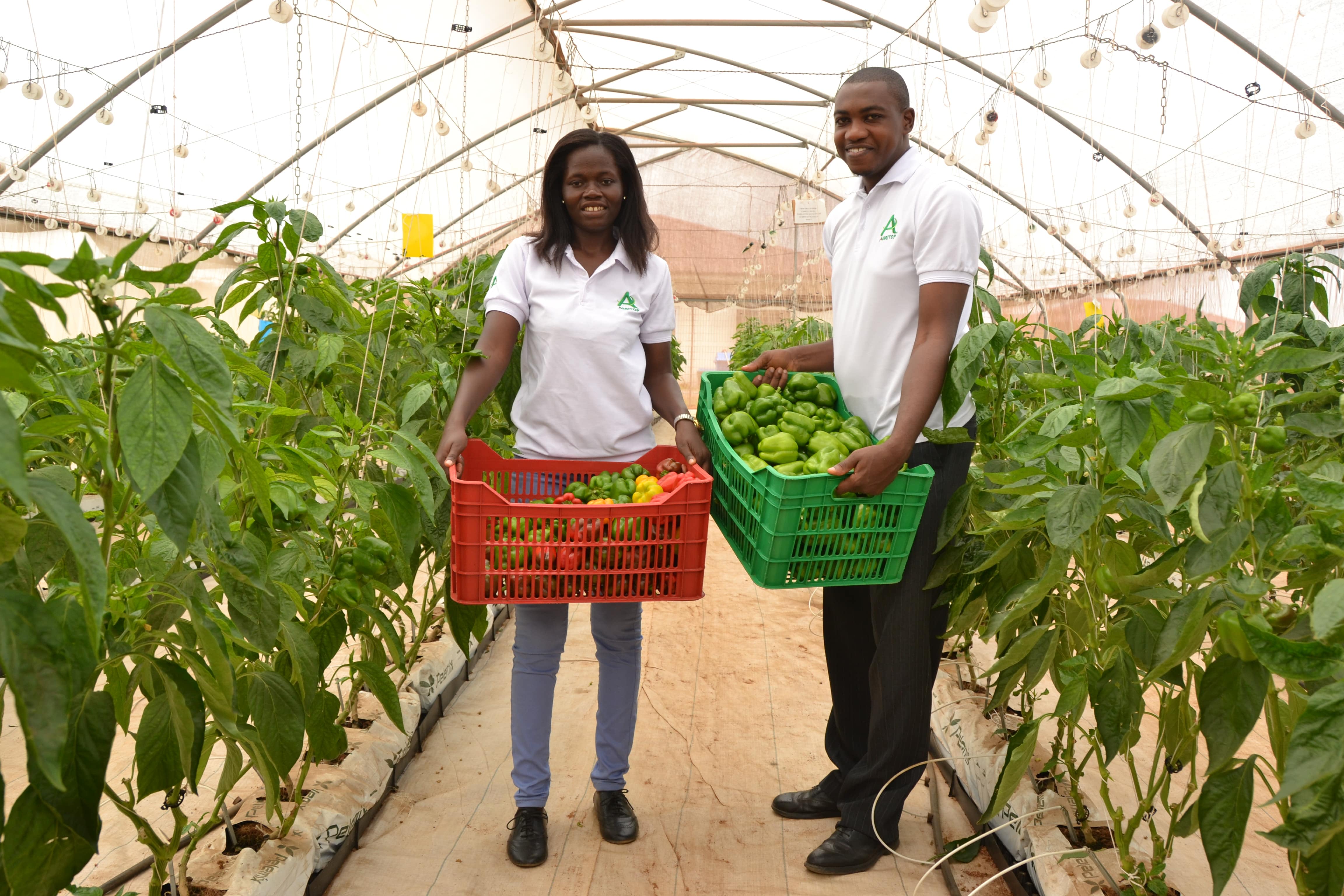Vegetable production using greenhouse is a globally proven technology. As a matter of fact, several high value vegetables like tomatoes, cucumbers, bell peppers, strawberries, etc., are produced by several countries around the world using the greenhouse technology. The technology has several advantages, including:
Greenhouse types serve different purposes for the cultivation process in different parts of the world. Whilst some farmers in temperate regions may be using the technology to conserve heat, others in the tropics may be using it to protect their crops from pests. Some also use it to reduce direct light intensity on delicate crops.
In Ghana, the sector is about a decade old, and began on a shaky note. It is not uncommon to find several “dotted” greenhouses across the length and breadth of the country, with most of them abandoned. Nonetheless, more farmers/private individuals are still interested in the technology because it can be a very profitable venture. Currently, there are less than 50 hectares of greenhouses used for vegetable production in Ghana, although more structures keep springing up. Single small unit greenhouses may only be ideal for subsistence farming, but a reasonable scale is critical for commercial production.
The question that arises is: why are most farmers not getting the expected results from greenhouses?
The secret is knowledge. Every technology is made to solve a specific challenge or problem. Successfully operating the technology is the biggest channel to success. Also, technology cannot always succeed if it is “photocopied” from one region or country to the other. Technology must be bespoke, or fit the locality it is introduced to. Discovering this comes through trials and building local experience or expertise.
It is important to state that the greenhouse is only a structure, usually made of metal poles serving as the frame and polyethylene roof adjoined to anti-insect side net covers. Indeed, the technology also comes with other accessories like drip irrigation which enables efficient production. However, these materials in themselves cannot produce 1gram of tomato or cucumber. The most critical roles are played by greenhouse agronomists who operate the system. Without such, the open field is a better option. Expertise is required in areas of seed selection, raising transplants, agro-techniques, crop protection and fertigation, among others. Once the right advice is received in these areas, one can clearly understand the production regime and go ahead to use the technology to best effect.
Agriculture is a science and must always be approached as such. This means that practices must have scientific basis which can be verified. A key component of the greenhouse technology is monitoring all practices using scientific methods, analyzing and recording all results, then implementing now and in the future. This assures continuous success as there is a lot more control.
The approach of Agritop Limited in the greenhouse sector has been apt – build the production knowledge, then success is guaranteed. Over the years, the company has built the required expertise and the best team to ensure greenhouse vegetable production remains “a dream come true” for several farmers. Agritop believes greenhouse is the future for vegetable production in Ghana, with the potential of creating means of livelihoods for many who want to go into farming. Experience in the terrain, with concrete evidence of production track is key for success in the greenhouse vegetable production sector, and that is what Agritop limited brings on board.
